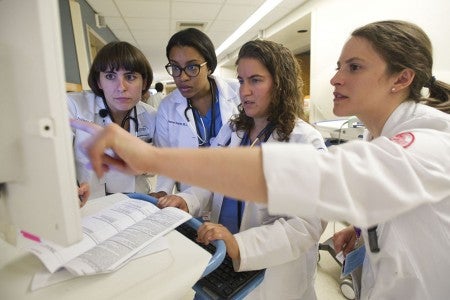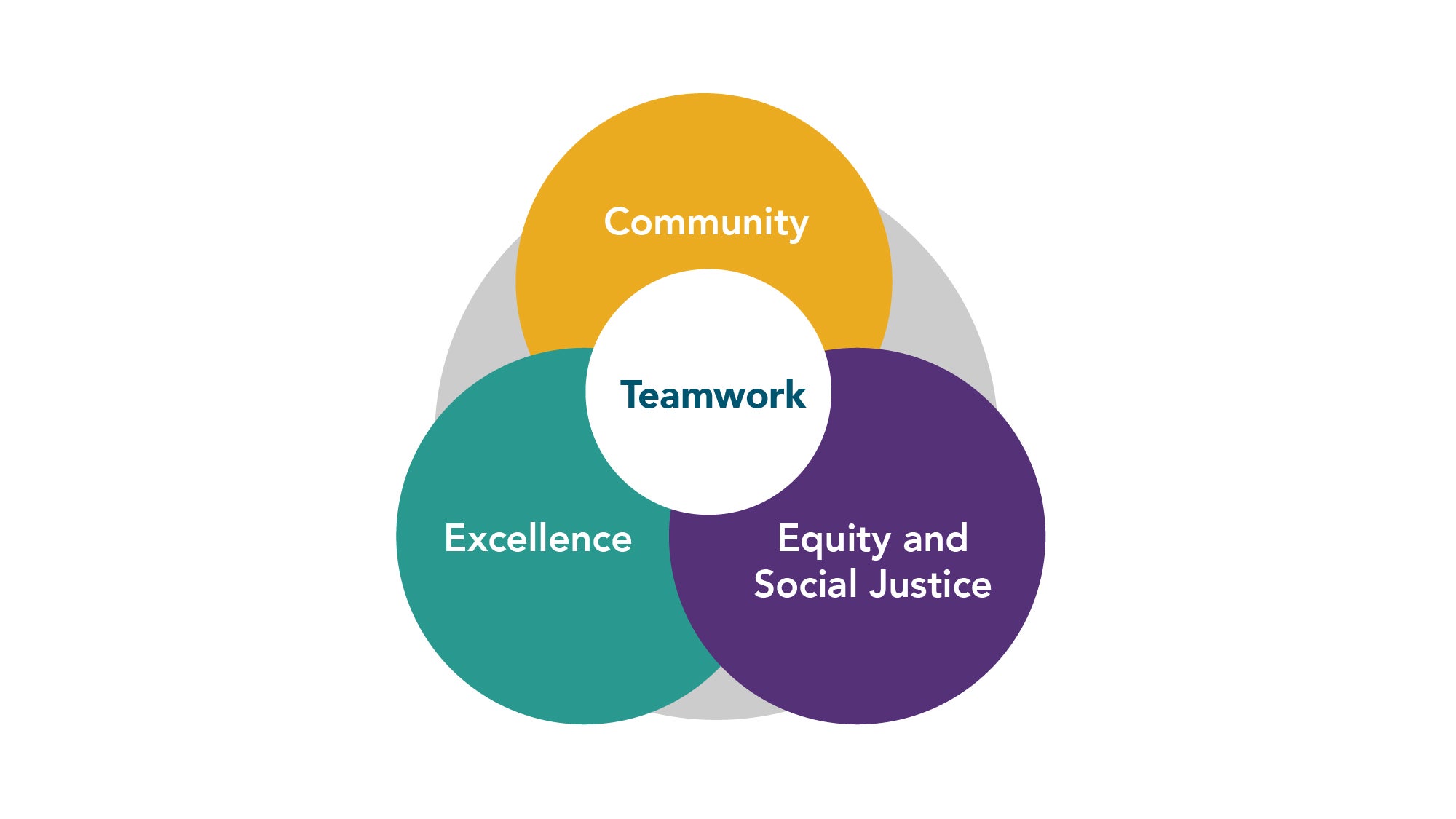Goals & Objectives of the Program
The purpose of the Boston University Chobanian & Avedisian School of Medicine / BMC Department of Family Medicine Residency Program is to prepare physicians for productive careers by emphasizing multidisciplinary efforts that integrate comprehensive primary care and public health approaches to the needs of patients, families, and their communities. Our department is committed to delivering care within the context of the patient’s family, and, where appropriate, care of the family as a unit. To exemplify the best in family medicine, competence, continuity, and comprehensiveness permeate the everyday clinical activities of staff, residents, and medical students.
Our goals are:
- To train clinically excellent family physicians dedicated to health equity, effectively caring for underserved communities in Boston and beyond, and teach the next generation of health providers to embark on sustainable and rewarding careers.
- To develop self-aware, compassionate leaders in family medicine who are improving patient care, advancing health policy, and becoming agents of change for community-oriented care.
- To promote an environment of inquiry, scholarship, inter-professional collaboration, and support, with active participation in clinical teaching and research.
- To facilitate primary care training that is patient-centered, comprehensive, and coordinated across the life span of patients in primary, secondary, and tertiary care settings.
- To train residency graduates to practice a full range of family medicine in a variety of settings.
Commitment to the Urban Underserved

Boston Medical Center has a long-standing commitment to addressing the health needs of the community. The medical center was created in 1996 from the merger of Boston City Hospital, the oldest municipal hospital in the United States, and Boston University Medical Center. Currently, BMC is the largest safety net hospital in New England, with approximately 73% of our patients coming from low-income and under-resourced populations. The patient population also reflects the racial and ethnic diversity of Boston and the surrounding communities and includes a number of recent immigrants and refugees. In-person interpreters are available 24/7 in over 30 languages. The hospital sees thousands of interpreter visits annually, with the most requested languages being Spanish, Haitian Creole, and Portuguese Creole.
The Family Medicine Residency Program builds on this legacy of service by providing a comprehensive, evidenced-based, primary care curriculum that recognizes the social determinants of health that influence how our patients experience illness. Our goal is to train clinically excellent family physicians who are dedicated to social justice and improving the health of Boston’s underserved communities and beyond. More than 50% of our program’s graduates currently practice in underserved settings or federally designated physician shortage areas.
 We, as a residency community, demonstrate our commitment to our colleagues, to our patients, and to ourselves by intentionally “living our values” each and every day. These values shape our mindset and guide our interactions, in support of the Mission, Vision, and Values of our department.
We, as a residency community, demonstrate our commitment to our colleagues, to our patients, and to ourselves by intentionally “living our values” each and every day. These values shape our mindset and guide our interactions, in support of the Mission, Vision, and Values of our department.
Core Values:
Community: We value a sense of connectedness with fellow residents, faculty, and staff. We commit to everyone being seen, heard, and valued. Everyone has an important role to play in the work that we do as clinicians, educators, researchers, and administrators. We strive to uphold a culture of transparency, openness, safety, and trust. We value opportunities to share physical spaces with each other outside of work, as well as engage with the communities we care for surrounding Boston Medical Center.
Excellence: We support one another and aspire to be the best providers, educators, and colleagues we can be. We hold ourselves to a high standard of excellence, recognizing the importance of a culture of inquiry, feedback, and growth. Recognizing each team member’s strengths and contributions is a core component of excellence.
Equity and Social Justice: We acknowledge that there have been historical insults that have led to inequities based on race, ethnicity, gender, sexual orientation, and other social identities and drivers. We strive to be a diverse and justice-oriented residency program where all residents, faculty and staff thrive, and resources are applied wherever needed. We will be intentional in recognizing when our peers or ourselves have been “othered”, and advocate for inclusion. We celebrate opportunities within our program where we can advance these principles.
Connect with BMC Family Medicine Residency on Social Media
![]() Instagram - @familyatbmc
Instagram - @familyatbmc
